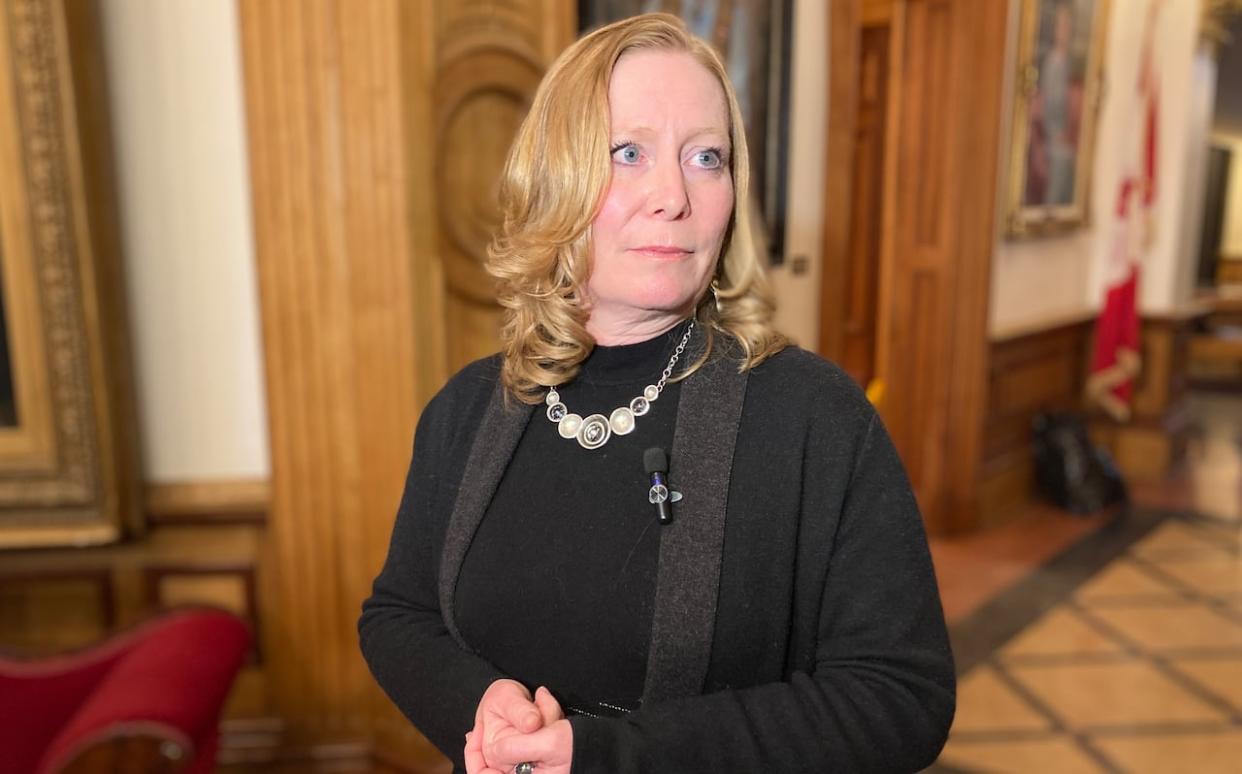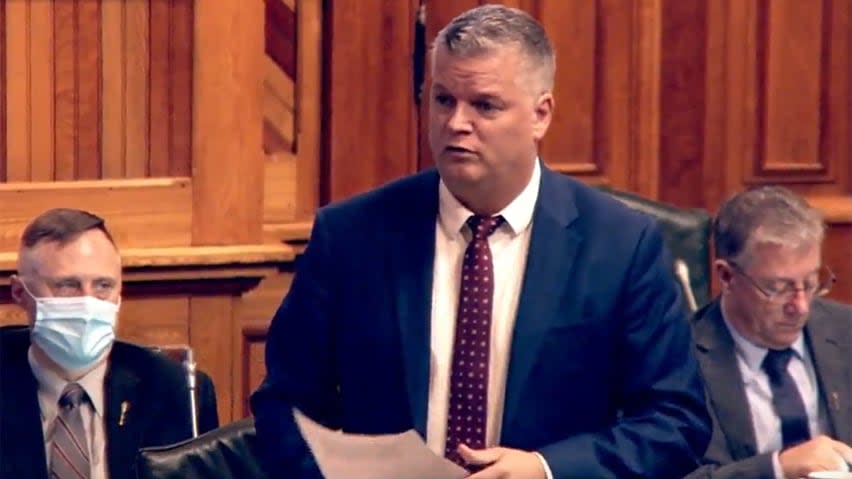Province paid more than $2.5M for travel nurses to work long-term care homes

Travel nurses brought in to work in long-term care in 2022 earned two-to-three times more than their New Brunswick-based colleagues, the province says.
Minister of Social Development Jill Green told a legislative committee Thursday that long-term care homes were in an emergency situation at the time the department signed contracts totalling just over $2.5 million with two private companies.
Toronto-based Canadian Health Labs received almost all of that money to provide 55 staff, from February to May 2022, Green said. The company charged a rate of $9,995 for a team of 10 people on an eight-hour shift.
That works out to an average of about $125 per hour, per person, although the hourly rates of pay "are not known by Social Development," according to spokesperson Kate Wright.
In an emailed statement, Wright did say that Canadian Health Labs provided a combination of registered nurses, licensed practical nurses and personal support workers.
In addition to that contract, Green said Social Development struck a $176,000 agreement with Plan A, an agency from Sudbury, Ont., for 34 staff, from February to July 2022.
Hourly wages varied under that contract with Plan A, depending on the position, Green said, with $89.50 paid to registered nurses, $59.50 to licensed practical nurses and $39.50 to personal support workers.
Those rates are notably higher than what New Brunswickers, working alongside the contract nurses, would have received at the time.
As per the province's collective agreements, hourly wages ranged from $37 to $45 for registered nurses, $29 to $32 for licensed practical nurses, and $21 to $23 for personal support workers.
The Social Development contracts are smaller than those struck by the province's regional health authorities for travel nurses, but are among those under investigation by Auditor General Paul Martin.
WATCH | 'It's unacceptable as a strategy':
A Globe and Mail investigation found Vitalité Health Network, which oversees New Brunswick's francophone hospitals, has awarded several large contracts to Canadian Health Labs.
Most recently, a $93-million agreement took effect on Dec. 2, 2022, and will run until February 2026, effectively charging Vitalité $306.70 an hour, per nurse.
Green told committee members the Social Development contracts were not awarded through the typical tender process.
Instead, she said, the department used an emergency exemption available under provincial procurement laws.
"There was no intent to hide anything or not speak about it publicly," she said. "As you can appreciate, with 410 [COVID-19] outbreaks that were happening at the time, it was an emergency situation."
The minister noted there were about 4,000 long-term care staff who tested positive for COVID-19 at the time.
Green was not available for an interview about the contracts with CBC News on Thursday.

Liberal social development critic Robert Gauvin questioned why the province would pay extra for out-of-province nurses rather than spend on incentives for New Brunswick workers. (Government of New Brunswick)
Social Development does not have any current contract with private agencies, Green said in the legislative committee meeting, but added that some individual nursing homes may still be using that option.
That's because the province is not always the direct employer of long-term care staff, she said.
"We have not been entertaining any thoughts around hiring agencies like this going forward," Green said.
"We talked to a few companies, three to four, to assess who had capacity at that time. And then we went with the ones that had capacity because we were in an emergency situation."
Opposition MLAs were not convinced by the minister's rationale for the costly contracts.
"There could have been a solution worked with the union, worked with our public service nurses," Green Party MLA Kevin Arseneau said.
"If we needed to go get out-of-province nurses, there would have been other ways to do that than to give this to private companies at incredible prices, all while undercutting our own public service. It's unacceptable as a strategy."
Liberal social development critic Robert Gauvin said the province should have spent on bonuses or other incentives for in-province workers instead.
"We have no problems spending three times as much for external workers, and yet we don't give incentive to keep the workers that are here now," he said in an interview.
![New Brunswick Nurses Union president Paula Doucet said, 'I don't know how many more incidents like that it will take for the [Regional Health Authorities] and government to do the right thing for workers in the health care facilities and ensure that we have proper security in place.'](https://s.yimg.com/ny/api/res/1.2/XkT9hFUbVDDQ35KYT_CRlA--/YXBwaWQ9aGlnaGxhbmRlcjt3PTk2MDtoPTU0MA--/https://media.zenfs.com/en/cbc.ca/5cb56743ebbca8686136db591625cc3a)
New Brunswick Nurses Union president Paula Doucet has called for an end to travel nursing contracts. (CBC)
The New Brunswick Nurses Union and the New Brunswick Council of Nursing Home Unions were not available for comment Thursday.
However, Paula Doucet, president of the Nurses Union, has previously called for an end to travel nursing contracts.
"Invest in New Brunswick, invest in New Brunswickers, and invest in New Brunswick nurses. And then maybe we would have a better health-care system for all," she said.


